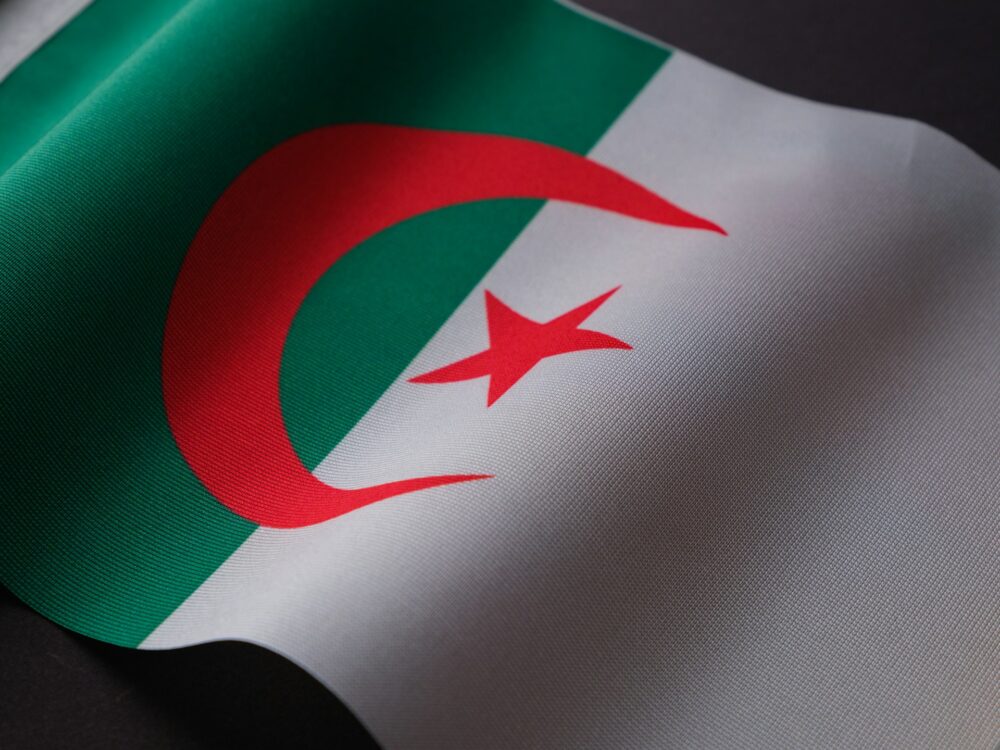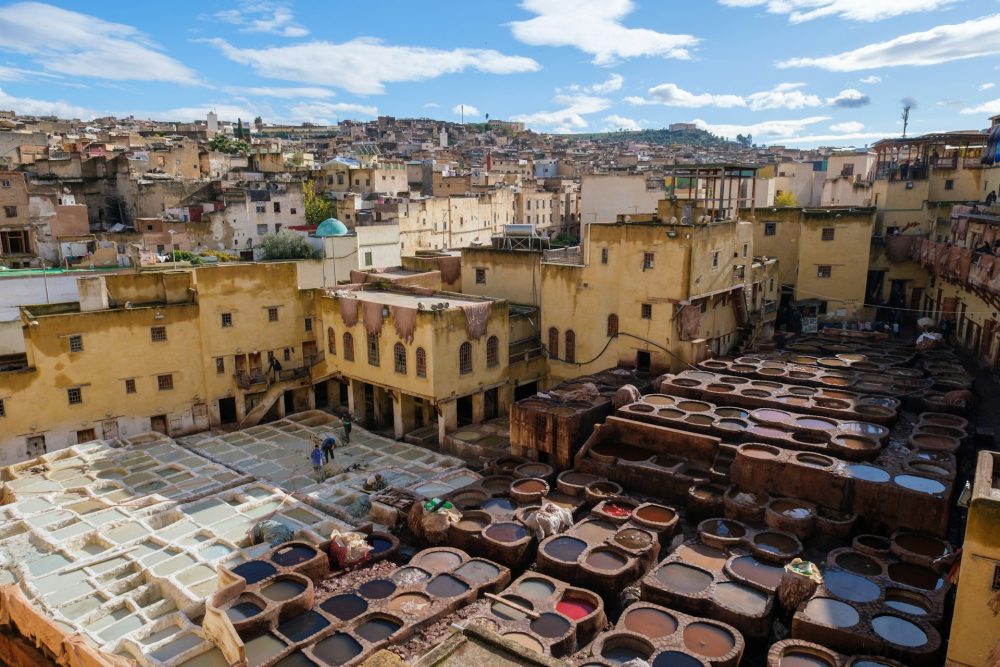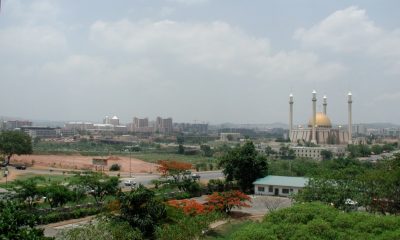Africa
Despite a Population Four Times Smaller, Algeria Should Overtake Nigeria in 2024
Algeria’s economic performance is exceptional, given its smaller population of 47 million compared to Nigeria’s likely 150 million. Algeria’s more developed economy, driven by industrial and tertiary sectors, is widening the gap. Algeria’s recent diversification efforts, attracting both local and foreign investments, are crucial for reducing dependency on hydrocarbons.

Although disadvantaged by a much smaller population, Algeria is expected to achieve the feat of overtaking Nigeria in terms of nominal GDP this year, according to the latest IMF forecasts. However, a possible switch to English could hamper the country’s continued economic take-off, by pushing it into the continent’s least economically dynamic linguistic zone overall, and by cutting it off from the vast and neighboring French-speaking Africa.
According to the latest IMF forecasts, Algeria should post a nominal GDP of 266.78 billion dollars in 2024, compared to 252.74 billion for Nigeria, which would thus fall to fourth position on the continent. A great performance for Algeria, given that Nigeria’s demographic advantage is likely to mechanically increase its GDP, which should thus be considerably higher.
Indeed, and at an equal level of development, a population for example twice as large automatically implies an economic activity twice as important, manifested by a number approximately twice as high of bakeries, shoemakers, or even funeral homes… which automatically doubles the total GDP. A reality that systematically places highly populated countries in a good position in international rankings in this area, even if they are less developed and less economically dynamic than their neighbors.
Greater dynamism, greater attractiveness, and better socio-economic indicators for Algeria
Algeria’s performance, which is expected to widen the gap with Nigeria over the next two years, according to the IMF, is all the more exceptional given that the country is four times less populated, with a population of 47 million inhabitants at the start of 2024, compared to, very probably, a maximum of 190 million for Nigeria.
The real population of Nigeria is certainly not around 230 million inhabitants, as indicated by official figures, but well below, as demonstrated by numerous studies carried out in Nigeria itself, and based on numerous indicators, such as the number of voters in elections, mobile phones in circulation, vehicles sold per year, or even satellite images of the country’s major cities.
Nigeria’s former president, Jonathan Goodluck, himself stated in April last year, eight years after leaving office, that the country’s real population was probably only about 150 million. A huge discrepancy, making Nigeria the only country in the world to publish official demographic data that is so far removed from reality, and which has been repeated since the country’s independence more than six decades ago (a peculiarity originating from the fierce political competition between the north and the south of the country, each side seeking to inflate its population).
This great performance by Algeria only reflects a much more developed economy than Nigeria, and relying in particular on denser and more dynamic industrial and tertiary sectors. Similarly, and although the country still has a long way to go in order to catch up in terms of diversification and competitiveness compared to its French-speaking Maghreb neighbours, Morocco and Tunisia, and thus avoid a drying up of foreign exchange reserves by the end of the decade (given the expected fall in the price of hydrocarbons and the country’s export capacities).
Algeria has recently – and finally – implemented a vast diversification policy with the aim of gradually moving away from its dependence on hydrocarbons, which still represent around 90% of national exports, as is also the case in Nigeria (the two countries have broadly comparable hydrocarbon production, Nigeria being the leading African producer of oil and the third for natural gas, and Algeria the leading for natural gas and the fourth for oil).
A diversification policy that relies on Algerian public and private investments, but now also on foreign investments, sometimes massive and in particular through the recent signing of numerous contracts with public or private entities from emerging powers, and often members of the BRICS (in agriculture, the agri-food industry, fertilizer production, textile industries, mining, etc.). Investors attracted by the stability of the country, and by an environment that is generally more and more favorable to business.
This growing attractiveness is precisely lacking in Nigeria, where new foreign investments outside hydrocarbons are now negligible, and which has even been deserted by a good part of the large foreign companies historically present in the country. A disaffection that can be explained by a climate that is generally quite unfavorable to investors, both foreign and national, and resulting from a very high level of corruption and insecurity.
Indeed, the country ranks 145th worldwide in the latest Corruption Perception Index, published by the NGO Transparency International last March (quite far behind Algeria, which occupies 104th place, almost in the “world average”), and records a very high number of various attacks each year (thefts, kidnappings, homicides, terrorist attacks in the northeast, etc.).
The generally better governance in Algeria, and in contrast to the situation that has prevailed for many years in Nigeria, is reflected in particular by much better socio-economic indicators, such as inflation, electrification and life expectancy. Indeed, the annual inflation rate over the decade from 2014 to 2023 was only 5.4% in Algeria, while it reached no less than 14.6% in Nigeria (and even 24.7% in 2023).
A very high level that can be partly explained by the constant collapse of the Nigerian currency, whose evolution in reality only reflects the real economic health of the country, and whose value has been divided by no less than 2,417 compared to the American dollar since its creation in January 1973. Over the same period, the value of the Algerian dinar has been divided by 34 (a fairly significant depreciation, but still 71 times less than for the naira…).
As for the electrification rate, this reached 100% of Algeria’s population in 2022, according to the latest data from the World Bank, compared to only 60.5% in Nigeria. Furthermore, the latter has the third lowest level of life expectancy in the world, estimated at 53.6 years in 2022, compared to 77.1 for Algeria (a level comparable to that of several developed countries that are members of the European Union). Similarly, Nigeria has the third highest infant mortality rate in the world, with 68.5 deaths per 1,000 live births in 2022, compared to 18.7 in Algeria (although almost twice as high as in Tunisia).
Economic take-off threatened by possible switch to English
At a time when Algeria is finally beginning to take off economically, and thus to catch up with its French-speaking neighbors in the Maghreb, some voices are being raised to call for a replacement of French by English, as the country’s first foreign language. However, a possible switch to English could slow down the country’s economic development and considerably harm its higher interests, by pushing it into the linguistic zone that is generally the least economically dynamic on the continent, and by cutting it off from the vast and neighboring French-speaking Africa.
Indeed, French-speaking Africa, much larger than what most geographical maps in circulation indicate (which divide the size of the African continent by two or three), is overall the most economically dynamic part of the continent, the most industrialized, the least indebted, the least affected by inflation, but also the least affected by inequalities (only two French-speaking countries among the ten most unequal African countries, according to the Gini index, and ranking from ninth place), corruption, violence and conflicts.
For example, French-speaking sub-Saharan Africa, a vast group of 22 countries, achieved the highest level of economic growth in sub-Saharan Africa in 2023 for the tenth consecutive year and the eleventh time in twelve years, according to the latest data from the World Bank (which confirms the trend for this year 2024), and recorded an annual growth rate of 3.9% over the ten-year period 2014-2023, compared to only 2.0% for the rest of sub-Saharan Africa (a rate lower even than its population growth).
As for inflation, it has generally been much lower in this vast area (4.1% over the last decade, compared to 17.2% for the rest of sub-Saharan Africa), as has debt, which remains more under control (51.3% of GDP at the end of 2023, compared to 67.1% according to the latest IMF data, and only two French-speaking countries among the ten most indebted countries on the continent).
A difference that is also observed in North Africa, with lower debt in the French-speaking countries of the Maghreb than in Egypt (where it reaches 95.9% of GDP at the end of 2023), and much lower inflation on the French-speaking side, with annual rates of 2.1%, 5.4% and 6.1%, respectively, for Morocco, Algeria and Tunisia over the decade 2014-2023, compared to 14.2% in Egypt (33.9% in 2023), where inflation is therefore generally at a level comparable to that of Nigeria (14.6% over the decade).
This dynamism has notably been reflected in the fact that Côte d’Ivoire has succeeded in becoming the richest country in all of continental West Africa, despite oil production approximately 50 times lower than that of Nigeria over the last decade, and despite oil and gold production six times and three to four times lower than that of neighboring Ghana.
A greater dynamism that can also be observed in Senegal and Cameroon, which have also just succeeded in the feat, in 2023, of overtaking Nigeria in GDP per capita, despite oil production 20 times lower for Cameroon over the decade 2014-2023, and simply non-existent in Senegal (which only joined the circle of hydrocarbon-producing countries this year).
Similarly, this French-speaking economic dynamism is evident in the number of companies present among the 500 largest companies on the continent, as revealed each year in the ranking published by Jeune Afrique magazine. Indeed, and in its 2023 edition, this ranking indicated the presence of no fewer than 56 Moroccan companies among the 500 largest on the continent in 2021, compared to only 46 for Egypt, which is three times more populated and should therefore be considerably better represented.
Similarly, Tunisia, which, like French-speaking Morocco, regularly ranks among the top continental rankings in terms of innovation and competitiveness, was represented by no fewer than 21 companies, despite its only 11 million inhabitants, thus also surpassing Algeria, which is four times more populated and represented by 12 companies. A ranking which also highlighted the rise of Côte d’Ivoire, which with its 27 companies was practically on a par with Nigeria (31) despite a much smaller population of almost 30 million inhabitants in 2021 (but having nevertheless increased eightfold since 1960).
Having become a major investor on the African continent, where it has a banking network twice as large as France, Morocco has undoubtedly already moved to the top of the most industrialized African countries, according to the criteria of the African Development Bank, overtaking South Africa, which it was already very close behind in the latest ranking published by this institution, in November 2022 (with a gap of only 0.9%).
Like Nigeria, this mining giant also suffers from a lack of economic dynamism, manifested in particular by an annual growth rate of only 0.7% over the decade 2014-2023, and by significant difficulties in terms of access to electricity, with a rate of only 86.5% at the national level and very frequent power cuts, sometimes exceeding 10 hours per day in the country’s major cities (while they are almost non-existent in North Africa).
Thus, a possible switch to English could seriously harm Algeria’s economic interests, but also its geopolitical interests, in particular by reducing its historical influence in the Sahel region in the long term. Instead of waging war against the French language, for various more or less avowed reasons, the higher interests of Algeria and its people require that we draw inspiration from the wisdom of its French-speaking neighbors and brothers in the Maghreb, Tunisia and Morocco, who have never renounced their French-speaking character and have simply chosen to add and generalize the learning of English as a second compulsory foreign language (taught chronologically in second position, in primary school in Tunisia and from the first year of middle school in Morocco).
It is also more than interesting to note that this in no way prevents these two neighbors from regularly ranking among the five best performing Arab countries in English (according to the EF-EPI ranking, which is the reference in this area), thus surpassing each year almost all the Arab countries formerly colonized by the United Kingdom, including the Gulf countries! Thus, learning French first hardly prevents one from mastering a second foreign language, while experience clearly shows that learning English first is generally likely to prevent one from mastering a second foreign language.
__
(Featured image by engin akyurt via Unsplash)
DISCLAIMER: This article was written by a third party contributor and does not reflect the opinion of Born2Invest, its management, staff or its associates. Please review our disclaimer for more information.
This article may include forward-looking statements. These forward-looking statements generally are identified by the words “believe,” “project,” “estimate,” “become,” “plan,” “will,” and similar expressions. These forward-looking statements involve known and unknown risks as well as uncertainties, including those discussed in the following cautionary statements and elsewhere in this article and on this site. Although the Company may believe that its expectations are based on reasonable assumptions, the actual results that the Company may achieve may differ materially from any forward-looking statements, which reflect the opinions of the management of the Company only as of the date hereof. Additionally, please make sure to read these important disclosures.
First published in Financial Afrik. A third-party contributor translated and adapted the article from the original. In case of discrepancy, the original will prevail.
Although we made reasonable efforts to provide accurate translations, some parts may be incorrect. Born2Invest assumes no responsibility for errors, omissions or ambiguities in the translations provided on this website. Any person or entity relying on translated content does so at their own risk. Born2Invest is not responsible for losses caused by such reliance on the accuracy or reliability of translated information. If you wish to report an error or inaccuracy in the translation, we encourage you to contact us

-

 Crowdfunding2 weeks ago
Crowdfunding2 weeks agoThe Youth Program at Enzian Shooting Club Is Expanding Thanks to Crowdfunding
-

 Africa2 days ago
Africa2 days agoMorocco’s Industrial Activity Stalls in January 2026
-

 Crypto1 week ago
Crypto1 week agoTariff Turmoil Sends Bitcoin and Ethereum Lower as Crypto Markets Face Mounting Pressure
-

 Crypto7 days ago
Crypto7 days agoEthereum Outlook: Key $2,190 Resistance, Whale Accumulation, and Buterin’s Push for True DeFi















